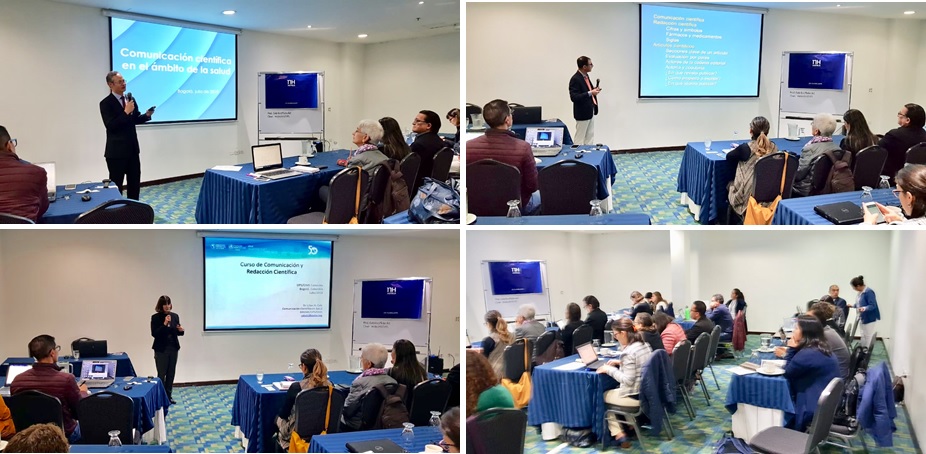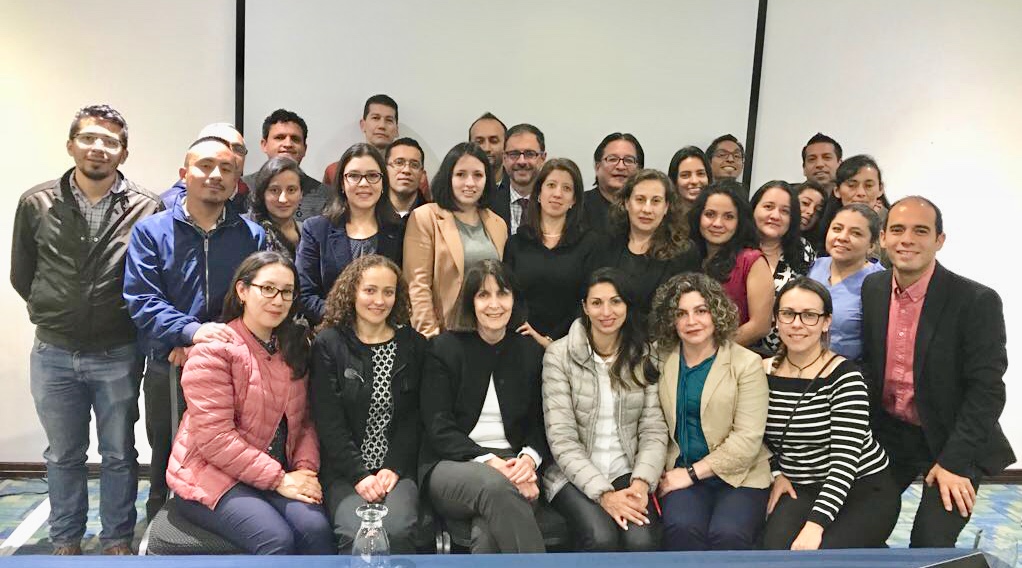The National Study on Environmental Health Equity: Colombia 2018 (Estudio Nacional de Equidad en Salud Ambiental – ENESA: Colombia 2018) is an intersectoral initiative, promoted by the Sub Direction of Environmental Health and the Direction of Epidemiology and Demography of the Ministry of Health and Social Protection, directed to document the role of environmental determinants in the generation of inequities in health among the Colombian population. The ENESA is an ecological study of analytical exploration of administrative data, oriented to detect patterns of inequality in health among the department and municipality units in the country.
In the framework of the technical cooperation between the Pan American Health Organization/World Health Organization (PAHO/WHO) and the Ministry of Health and Social Protection (MPSP) of Colombia, for the development of the National Study on Environmental Health Equity (ENESA), promoted by PAHO/WHO Colombia and the area of Health Analysis/Department of Evidence and Intelligence for Action in Health/PAHO, a Scientific Communication Workshop was carried out, directed to the technical teams on environmental health and their intersectoral counterparts (such as water, air, climate, mobility, mining and zoonoses) on July 26, 27 and 30, in Bogotá, Colombia.
 Dr. Lilian Calò (BIREME) and Dr. Damián Vázquez (Knowledge Management and Publications – KMP and Editor-in-Chief of the Pan American Journal of Public Health/PAHO) were in charge of the course, which was organized by Dr. Oscar Mújica (Health Analysis/Department of Evidence and Intelligence for Action in Health – HA/EIH) with the collaboration of Claudia Moreno (Integral Family Immunization/Department of Family, Health Promotion and Course of Life – IM/FPL).
Dr. Lilian Calò (BIREME) and Dr. Damián Vázquez (Knowledge Management and Publications – KMP and Editor-in-Chief of the Pan American Journal of Public Health/PAHO) were in charge of the course, which was organized by Dr. Oscar Mújica (Health Analysis/Department of Evidence and Intelligence for Action in Health – HA/EIH) with the collaboration of Claudia Moreno (Integral Family Immunization/Department of Family, Health Promotion and Course of Life – IM/FPL).
The topics discussed during the workshop included various aspects of scientific communication, such as article structure, criteria for authorship, how to start writing, ethics in scientific publication, how to choose the journal and the language to publish, public science, peer review, scientific impact indexes, and trends in scholarly communication.
According to Dr. Vázquez, “That which is not published does not exist. Training authors on the correct elaboration of articles favors the dissemination of research results in health, to the benefit of science and of society”.
 Thirty-five professionals participated in the three days workshop, which included presentations, exercises, dynamics, and group work with the authors. On the last day (July 30), the professionals presented drafts of the articles they had written during the weekend, to be reviewed and discussed by teachers and colleagues. “This specific ENESA group was very proactive during the workshop; their comments, questions and interventions during the activities of theory and practice proved to be extremely gratifying”, commented Dr. Lilian Calò.
Thirty-five professionals participated in the three days workshop, which included presentations, exercises, dynamics, and group work with the authors. On the last day (July 30), the professionals presented drafts of the articles they had written during the weekend, to be reviewed and discussed by teachers and colleagues. “This specific ENESA group was very proactive during the workshop; their comments, questions and interventions during the activities of theory and practice proved to be extremely gratifying”, commented Dr. Lilian Calò.
According to Dr. Mújica, “this Scientific Communication Workshop crystallizes, in a clear and original way, a double institutional effort towards a common objective: on the one hand, it stimulates a genuine intersectoral construction, bringing together a large group of participants from different government sectors linked to environmental health and, on the other hand, promotes a fruitful, legitimately interprogramatic collaboration with PAHO/WHO Colombia, BIREME, KMP, FPL and EIH; the common objective being the strengthening of scientific communication skills of the ENESA Team for the preparation of eight original scientific manuscripts highlighting the role of environmental determinants and intersectoral work for equity in health in this country, committed to education, peace and equity.”